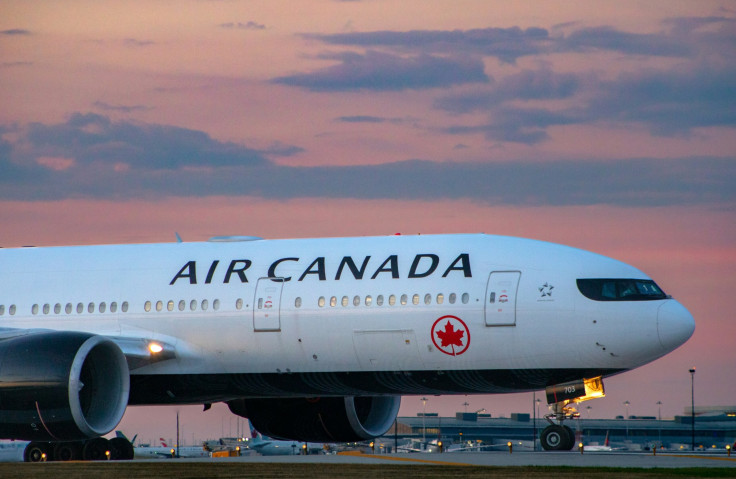Is The Air Canada Flight Attendants' Strike Over? Airline Status And What We Know So Far
Over 10,000 cabin crew continue job action despite legal ruling, grounding flights and leaving 500,000 passengers stranded

More than 10,000 Air Canada flight attendants are defying their back-to-work order. The cabin crews are currently on their third day, with the Canada Industrial Relations Board deeming their strike as 'unlawful'. While Air Canada has yet to respond to the union's latest move, here's what we know about the matter so far.
Air Canada's Initial Response
Earlier, the airline said that they planned to resume operations by Monday evening. However, a notice on their website on Monday afternoon said that flights will 'remain suspended'.
It added that all flights by Air Canada and Air Canada Rouge were cancelled until 16:00 EDT on Tuesday. As a result, the trade organisation representing Air Canada, among other major Canadian firms, condemned the union for defying the order.
This includes the likes of WestJet and FedEx Canada. The organisation then said they are 'normalising the idea that if you don't like a decision, you can simply ignore it'.
Daniel Safayeni, President and CEO of Federally Regulated Employers - Transportation and Communications (Fetco) said 'That is not labour relations, it's a reckless path that erodes trust in the labour relations system'.
He also added that it weakened their global reputation and undermined economic stability at a moment of heightened geopolitical uncertainty. Again, The Canada Industrial Relations Board ordered the union to send its members back to work.
They were instructed to return to their duties by 12:00 EST on Monday.
Union's Response to Work Order
Considering the weight of the issue, it's unclear what consequences the Canadian Union of Public Employees (CUPE) will face. CUPE President Mark Hancock said that they were willing to accept any penalties for their defiance, including monetary fines and jail time.
Hancock added that the union will only accept to resolve the matter through a negotiated settlement. Western University law professor Michael Lynk weighed in on the matter, saying that union leadership could face consequences such as fines and potential jail time.
The professor said that the government's best option is to go to court to enforce the order. He also suggested that they should secure a contempt order if the union refused to back down.
Meanwhile, Prime Minister Mark Carney said that the inability of Air Canada to reach an agreement with its cabin crew was 'disappointing'. For reference, the two parties have been in negotiations for eight months, with Carney urging both parties to resolve this immediately.
Air Canada Strike Damages, Current Status
Air Canada has estimated that 500,000 passengers have been affected by flight cancellations.
During their remarks held on Monday, union representatives apologised for the impact the job action had on travellers across Canada. Flight attendants continue to call for higher salaries, and to be paid for work when aircrafts are on the ground.
During negotiations, Air Canada said they offered flight attendants a 38% increase in total compensation over four years. This deal comes with a 25% raise in the first year.
However, CUPE rebuked the offer, saying it was 'below inflation, market value and minimum wage'. This amount of compensation would still leave flight attendants unpaid for some hours of work, including boarding and waiting at airports ahead of flights.
The union and airline have since publicly traded barbs concerning their willingness to find a solution.
© Copyright IBTimes 2025. All rights reserved.





















